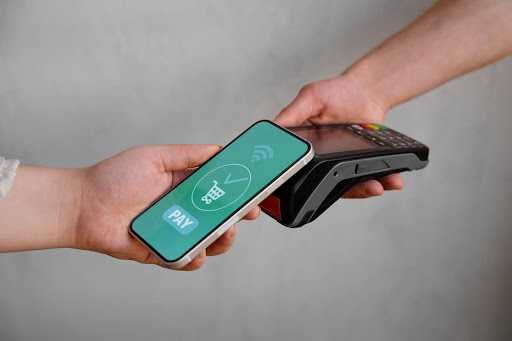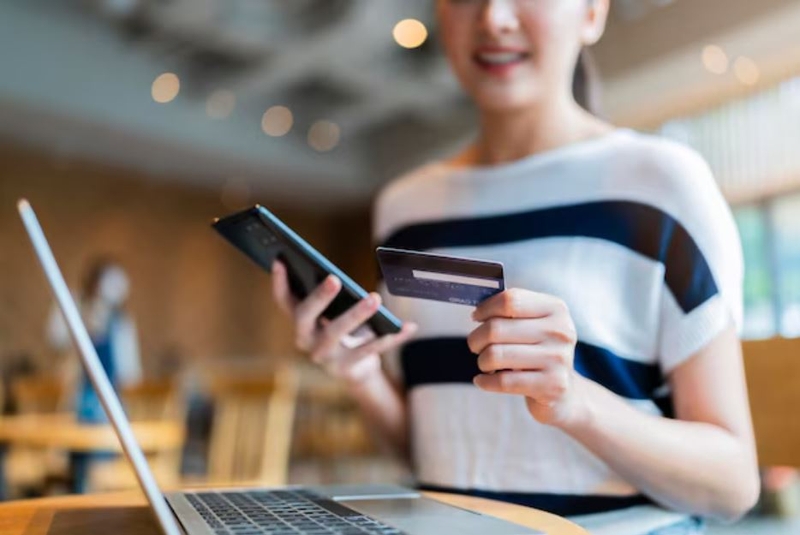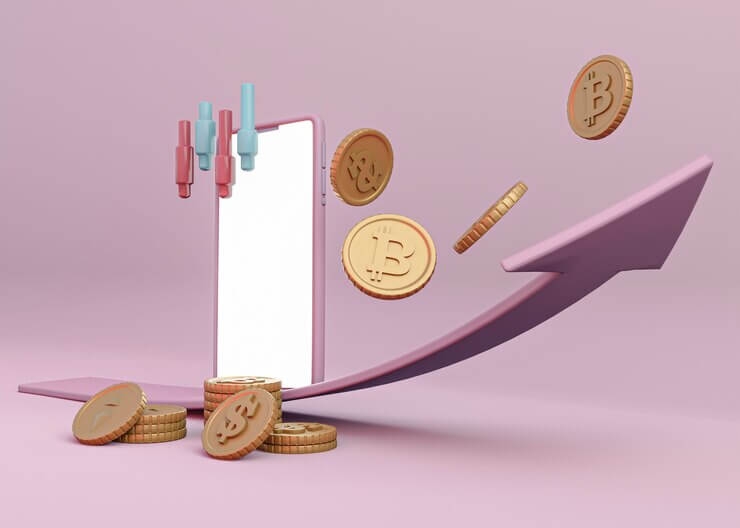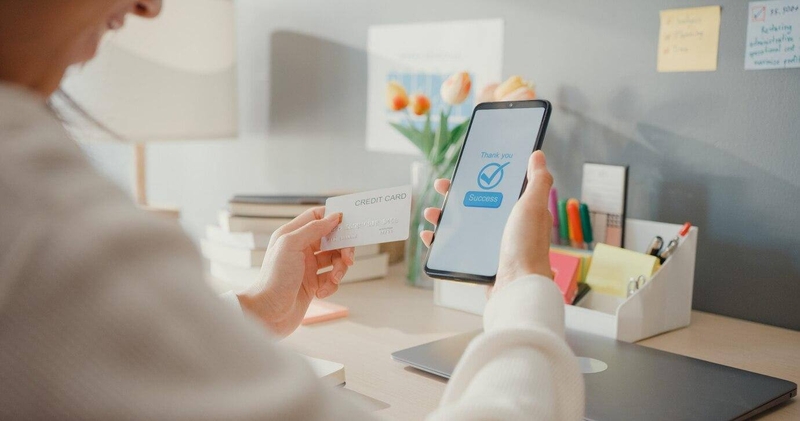

What Is a Digital Wallet?
A digital wallet, or e-wallet, is a virtual version of a physical wallet that securely stores payment methods like credit cards, cryptocurrencies, and gift cards. It simplifies online and in-store purchases using technologies like QR codes and Near Field Communication (NFC).
VELLIS NEWS
27 Mar 2025
By Vellis Team
Vellis Team
Automate your expense tracking with our advanced tools. Categorize your expenditures
Related Articles

Vellis News
31 March 2025
Exploring Different Types of Payment Processing Solutions
High-risk businesses face unique challenges when it comes to payment processing, requiring specialized solutions to navigate strict regulations and potential financial risks.

Vellis News
27 March 2025
What is Cryptocurrency Price Index?
The cryptocurrency world has seen a plethora of unique coins appear during the past few years. It is estimated that the crypto market has over 1000 tokens and a total market cap of about USD 260 billion as of November 2017. This translates to a 1200 percent increase from what the value was worth twelve months ago.

Vellis News
5 March 2025
What is Payment Processing?
Payment processing is the system that transfers funds from a buyer to a seller, ensuring secure transactions across various platforms. Integrated payments play a crucial role in digital commerce, making transactions seamless and secure.
How Does a Digital Wallet Work?
E-wallets store payment details, linking to mobile apps for quick transactions. They support various payment options local & international payments, like credit and debit cards, cryptocurrencies, and even biometric authentication for added security.
The global use of e-wallets is rising, with projections showing they’ll handle over 52.5% of e-commerce transactions worldwide by 2025. E-wallets enhance convenience by allowing contactless payments through smartphones while also prioritizing security with encryption and tokenization. Every transaction generates a unique token, keeping card details hidden.
When making a payment, the e-wallet account number is linked to a bank account or stored funds. Transactions occur via NFC, Magnetic Secure Transmission (MST), or QR codes, often requiring additional authentication, like a fingerprint or facial scan, to ensure security.
Types of Digital Wallets
Digital wallets come in various forms, each serving different needs and preferences. They range from closed systems for single-company use to open setups that work across many locations and services.
Closed wallets
These e-wallets, like Amazon Pay, are tied to specific companies, allowing transactions only within their network. They store gift cards, loyalty points, and passcodes while offering encrypted security and biometric verification.
Semi-closed wallets
Semi-closed e-wallets, such as Paytm and Venmo, work across multiple merchants. They partner with payment service providers, allowing users to store and use funds on different platforms via QR codes and NFC technology.
Open wallets
Open e-wallets, like PayPal and Google Pay, connect directly to bank accounts, enabling online shopping, money transfers, and payments at various merchants worldwide. They offer flexibility, making them the best e-wallet account choice for global transactions.
Benefits of Using a Digital Wallet
Digital wallets offer users quick and easy payment options, boosting the efficiency of transactions. They also provide enhanced security through features like encryption and biometric verification, safeguarding personal financial information.
Convenience
E-wallet apps make transactions instant, eliminating the need for cash or physical cards. They streamline online and international payments, making fund transfers quick and hassle-free.
Security
Digital wallets secure transactions using encryption and biometric authentication. Tokenization is key in how to prevent chargebacks and adds an extra security layer with two-factor authorization.
Integration
E-wallets integrate seamlessly with e-commerce platforms, banks, and peer-to-peer payment systems. They store multiple payment methods, simplifying online purchases and fund transfers.
Rewards and Discounts
Many e-wallet providers offer cashback, loyalty points, and exclusive discounts. These rewards automatically apply to transactions, enhancing the shopping experience.
Are Digital Wallets Safe?
With ransomware attacks rising by nearly 70% in 2023, security is a top concern. E-wallets tackle this with advanced encryption, biometric authentication, and two-factor verification.
To protect your e-wallet account:
- Use strong passwords with numbers, symbols, and letters.
- Enable biometric authentication for extra security.
- Download e-wallet apps only from official sources.
- Keep software updated to patch security vulnerabilities.
- Avoid using e-wallets on public Wi-Fi.
- Monitor transactions regularly for suspicious activity.
- Use two-factor authentication for extra verification.
- Be cautious of phishing scams.
Following these steps ensures your free e-wallet account remains secure.
Digital Wallets vs. Traditional Payment Methods
E-wallet payments are faster and more secure than cash or credit cards. They offer instant transactions and use encryption and biometric authentication for protection.
While credit cards provide rewards and credit access, they require manual input, making transactions slower. Cash is useful for small transactions but lacks security and tracking features.
E-wallet examples like PayPal and Google Pay allow users to make purchases instantly without entering card details repeatedly. This speed and security make e-wallets increasingly popular for daily transactions.
Future of Digital Wallets
The future of digital wallets holds significant potential for integrating cryptocurrency and improving security through biometric authentication. These advancements will likely drive their expansion in developing economies and utilize artificial intelligence to combat fraud more effectively.
Integration with cryptocurrency.
E-wallets are expanding to support cryptocurrencies like Bitcoin. PayPal and Cash App already allow users to buy, sell, and hold crypto, making digital assets more accessible. Banks are also exploring Central Bank Digital Currencies (CBDCs) to bridge traditional finance with digital wallets.
Advancements in biometric authentication.
E-wallet security is evolving with fingerprint scans, facial recognition, and voice authentication. Companies like Apple and Amazon are leading the shift toward biometric payment solutions.
Expansion of digital wallets in developing economies.
E-wallets are revolutionizing payments in developing regions. Initiatives like India’s Digital India and new financial regulations in Latin America are increasing access to digital payments, helping the unbanked population manage finances online.
Artificial intelligence in fraud prevention.
Artificial intelligence is transforming fraud detection by analyzing transaction patterns to spot suspicious activity. AI-powered systems have increased money laundering detection rates by 45%, making e-wallets more secure.
E-wallets are reshaping how we handle transactions, offering speed, security, and convenience. Whether for online shopping, money transfers, or managing cryptocurrency, digital wallets provide a seamless and secure financial experience. Choosing the best e-wallet account ensures easy and protected payments in today’s digital world.
FAQs About Digital Wallets
What is the difference between a digital wallet and a mobile wallet?
A digital wallet works across multiple devices, including desktops and tablets, while a mobile wallet is specifically designed for smartphones.
Do digital wallets charge fees?
Most e-wallets offer free basic transactions, but fees may apply for international transfers, currency conversions, or premium services.
Can digital wallets be hacked?
While e-wallets use encryption and authentication for security, they can still be vulnerable to hacking. Using strong passwords, biometric authentication, and avoiding public Wi-Fi can reduce risks.
Do all merchants accept digital wallets?
No, acceptance depends on the merchant’s payment system, though adoption is increasing globally.
Can I use a digital wallet without a bank account?
Some e-wallets require bank linkage, but others offer prepaid options or support cryptocurrency for transactions.
References
Kaspersky. (n.d.). Is your eWallet safe? Retrieved from: kaspersky.com/resource-center/threats/is-your-ewallet-safe
NerdWallet. (n.d.). What is a digital wallet and how does it work? Retrieved from: nerdwallet.com/article/credit-cards/what-is-a-digital-wallet-and-how-does-it-work
Economic Times. (n.d.). Definition of e-wallets. Retrieved from: economictimes.indiatimes.com/definition/e-wallets?from=mdr
Investopedia. (n.d.). Digital wallet. Retrieved from: investopedia.com/terms/d/digital-wallet.aspFederal Trade Commission (FTC). (n.d.). Online payments and digital security. Retrieved from: consumer.ftc.gov/articles/online-payments-and-digital-security

Ready to transform your financial management?
Sign up with Vellis today and unlock the full potential of your finances.
Related Articles

Vellis News
27 March 2025
Critical eCommerce Failures You Need to Avoid
Everyday eCommerce Businesses face different confrontations online. One of the biggest challenges you face is to get your product sold, as this is the sole purpose of starting an online shop right. However, did you know an e-commerce store is not only about sales conversion?

Vellis News
1 April 2025
High-Risk Payment Processors Challenges
Conducting business in this thriving financial world faces an abundance of challenges. If you are conducting business in high-risk industries such as gambling, there are bound to be even more challenges. Hence, high-risk payment processors act as individual financial service providers that handle transactions for such risk-considered businesses.

Vellis News
25 March 2025
International Wire Transfer Regulations
In the era of sprucing digital advancements, users have found it particularly practical to rely on wire transfer regulations for speed, safety, fraud prevention, money laundering, and many more. Plenty of individuals and businesses across the globe have found it particularly easy, practical, and safe to send money abroad through international wire transfers. In addition, non-compliance may lead to transaction deals, dissatisfaction, and even heavy fines for business.
We use cookies to improve your experience and ensure our website functions properly. You can manage your preferences below. For more information, please refer to our Privacy Policy.
© 2025 Vellis Inc.
Vellis Inc. is authorized as a Money Services Business by FINTRAC (Financial Transactions and Reports Analysis Centre of Canada) number M24204235. Vellis Inc. is a company registered in Canada, number 1000610768, headquartered at 30 Eglinton Avenue West, Mississauga, Ontario L5R3E7, Canada.

